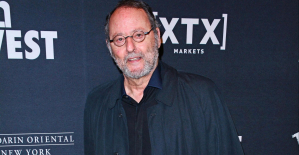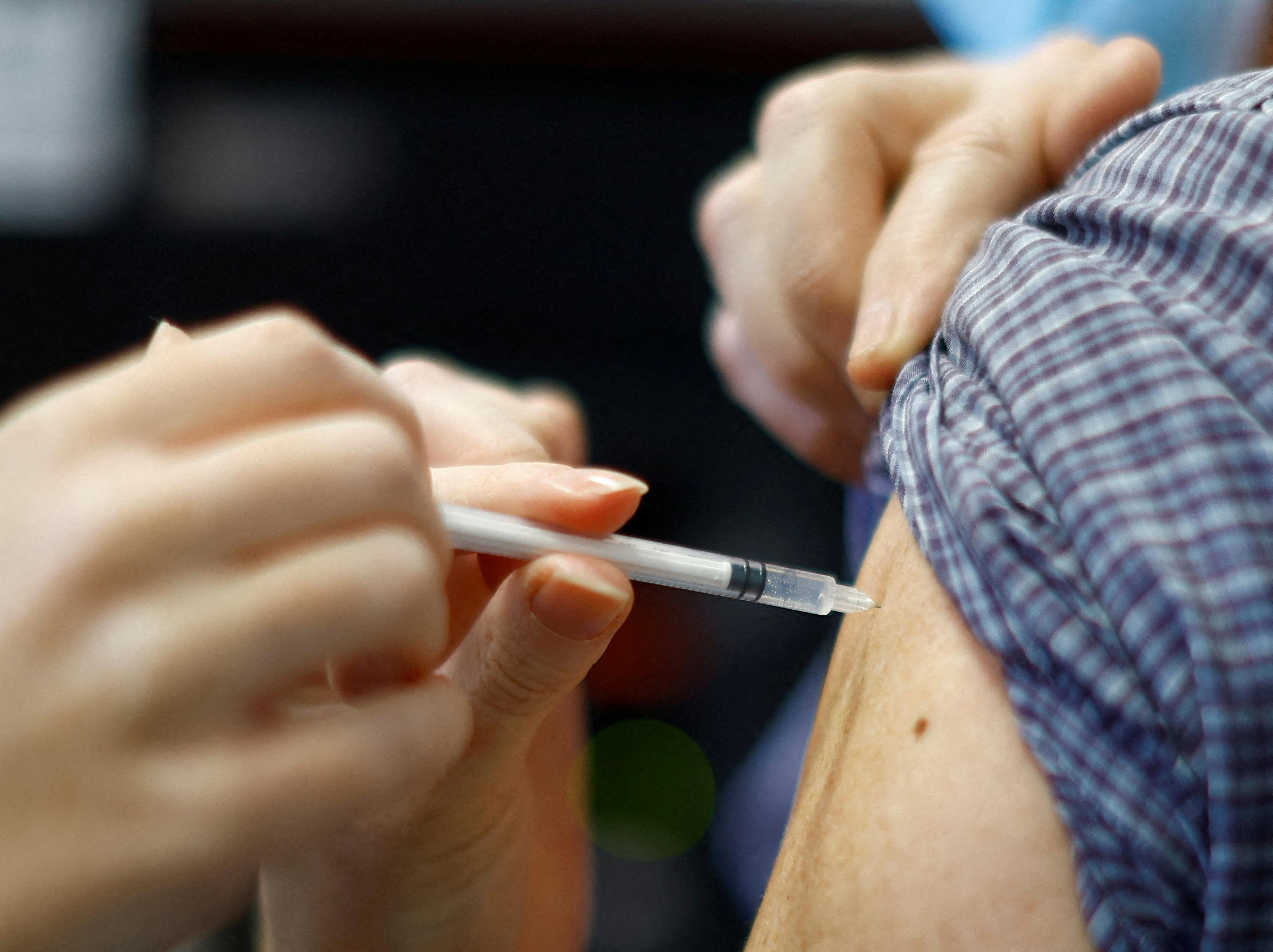The time of reckoning has come for vaccines against Covid-19. And the results are - unsurprisingly - positive, according to a recent report from the World Health Organization (WHO). On January 16, the network responsible for monitoring respiratory diseases released a study on the number of lives saved thanks to vaccination in Europe. This is of course not the first of its kind. According to WHO experts, vaccines have made it possible to reduce mortality due to the virus by 57% between December 2020 - date of their introduction - and March 2023. This represents around 1.4 million lives saved through 34 countries on the European continent. The researchers report that all countries under the WHO European regional office, which include Russia and countries in Central Asia, reported 2.2 million deaths linked to Sars-CoV-2 during the First 3 years of the pandemic.
“Today there are 1.4 million people in our regions - most of them elderly - who can enjoy their lives, surrounded by their loved ones, because they made the vital decision to get vaccinated against Covid-19. This is the power of vaccines. The evidence is irrefutable,” argued Dr Hans Kluge, WHO regional director for Europe, during a press conference. Almost all of the lives saved (96%) concern people aged 60 and over.
The countries that have most quickly initiated a vaccination program covering a large part of the population – such as Belgium, Denmark, Iceland, Ireland, Israel, Malta, the Netherlands and the United Kingdom – are those which have recorded the greatest benefits in terms of the number of lives saved overall through vaccination. Thus, Israel recorded the greatest benefits for all age groups with a mortality reduction of 75%, followed by Malta and Iceland with a reduction of 72% and 71%, respectively.
Please note that this work, carried out by around thirty scientists from European health agencies, is a pre-publication. In other words, it has not yet gone through the peer validation stage, an inalienable principle of the scientific process. “However, this is work carried out by a WHO network so there are good reasons to believe that it will be published in the months, or even weeks, to come,” notes Mircea Sofonea, master of conferences in epidemiology at the University of Montpellier.
“It is important to do this type of analysis because as the years pass and this episode recedes from us, the impact that vaccination had has the risk of being minimized, as was the case for other epidemics,” underlines the epidemiologist. “Over time, we forget why we are vaccinated and we begin to neglect this preventive measure, which opens the way to a return of infectious diseases, which some people wrongly think belong to the past,” he continues. citing the example of measles which is currently resurfacing on the European continent.
The scientist, however, notes some limitations to this study. “This work is based on mortality data due to Covid-19 reported by countries. But we know that they are sometimes underestimated,” he explains. In addition, WHO experts did not take into account the “altruistic” effects of the vaccine. “To put it simply, they multiplied the number of deaths recorded by the vaccine effectiveness evaluated in clinical trials,” continues Mircea Sofonea. A bit as if, during sales, you know the sale price of a product as well as the reduction applied to it, and you are trying to calculate its original price. A little too approximate approach. “We should also take into account the indirect benefits of the vaccine: the deaths which did not occur because vaccinated people transmitted the virus less, but also the deaths avoided thanks to the explosion of health systems”, underlines the epidemiologist, who carried out this type of work for deaths avoided in 2021. In other words, the number of lives saved in reality in Europe is probably greater than 1.4 million.
During the press conference, Dr Kluge emphasized the need for the most vulnerable people to continue to be vaccinated regularly, 6 to 12 months after their last dose. “This concerns the elderly, pregnant women, immunocompromised people and those with chronic illnesses as well as front-line health workers,” he said. As with the flu vaccination, an annual booster is now recommended against Covid-19. It is also recommended to get these two vaccines at the same time. But the measure is struggling to be followed in France. Barely a third of those over 65 have so far received their “booster” as part of the current vaccination campaign (which represents the fourth or fifth booster), according to Public Health France.
“COVID-19 has not disappeared. We just learned to live with it,” recalled Dr. Kluge. Even if its impact on the healthcare system is now limited, Covid-19 remains the leading cause of admission to intensive care among respiratory infections, ahead of influenza and bronchiolitis viruses.

 What is chloropicrin, the chemical agent that Washington accuses Moscow of using in Ukraine?
What is chloropicrin, the chemical agent that Washington accuses Moscow of using in Ukraine? Poland, big winner of European enlargement
Poland, big winner of European enlargement In Israel, step-by-step negotiations for a ceasefire in the Gaza Strip
In Israel, step-by-step negotiations for a ceasefire in the Gaza Strip BBVA ADRs fall almost 2% on Wall Street
BBVA ADRs fall almost 2% on Wall Street Breast cancer: less than one in two French women follow screening recommendations
Breast cancer: less than one in two French women follow screening recommendations “Dazzling” symptoms, 5,000 deaths per year, non-existent vaccine... What is Lassa fever, a case of which has been identified in Île-de-France?
“Dazzling” symptoms, 5,000 deaths per year, non-existent vaccine... What is Lassa fever, a case of which has been identified in Île-de-France? Sánchez cancels his agenda and considers resigning: "I need to stop and reflect"
Sánchez cancels his agenda and considers resigning: "I need to stop and reflect" The Federal Committee of the PSOE interrupts the event to take to the streets with the militants
The Federal Committee of the PSOE interrupts the event to take to the streets with the militants The growth gap between Europe and the United States will narrow in 2025
The growth gap between Europe and the United States will narrow in 2025 A report recommends the creation of a “riot fund” to cover communities
A report recommends the creation of a “riot fund” to cover communities With 3.5 billion euros collected, life insurance recorded its best month in 10 years in March
With 3.5 billion euros collected, life insurance recorded its best month in 10 years in March Volvic factory shut down after “an act of malicious intent”: production can resume “at the earliest” on Friday
Volvic factory shut down after “an act of malicious intent”: production can resume “at the earliest” on Friday Jean Reno publishes his first novel Emma on May 16
Jean Reno publishes his first novel Emma on May 16 Cannes Film Festival: Meryl Streep awarded an honorary Palme d’Or
Cannes Film Festival: Meryl Streep awarded an honorary Palme d’Or With A Little Something Extra, Artus and his disabled actors do better than Intouchable on the first day
With A Little Something Extra, Artus and his disabled actors do better than Intouchable on the first day Madonna ends her world tour with a giant - and free - concert in Copacabana
Madonna ends her world tour with a giant - and free - concert in Copacabana Omoda 7, another Chinese car that could be manufactured in Spain
Omoda 7, another Chinese car that could be manufactured in Spain BYD chooses CA Auto Bank as financial partner in Spain
BYD chooses CA Auto Bank as financial partner in Spain Tesla and Baidu sign key agreement to boost development of autonomous driving
Tesla and Baidu sign key agreement to boost development of autonomous driving Skoda Kodiaq 2024: a 'beast' plug-in hybrid SUV
Skoda Kodiaq 2024: a 'beast' plug-in hybrid SUV The home mortgage firm rises 3.8% in February and the average interest moderates to 3.33%
The home mortgage firm rises 3.8% in February and the average interest moderates to 3.33% This is how housing prices have changed in Spain in the last decade
This is how housing prices have changed in Spain in the last decade The home mortgage firm drops 10% in January and interest soars to 3.46%
The home mortgage firm drops 10% in January and interest soars to 3.46% The jewel of the Rocío de Nagüeles urbanization: a dream villa in Marbella
The jewel of the Rocío de Nagüeles urbanization: a dream villa in Marbella Europeans: a senior official on the National Rally list
Europeans: a senior official on the National Rally list Blockade of Sciences Po: the right denounces a “drift”, the government charges the rebels
Blockade of Sciences Po: the right denounces a “drift”, the government charges the rebels Even on a mission for NATO, the Charles-de-Gaulle remains under French control, Lecornu responds to Mélenchon
Even on a mission for NATO, the Charles-de-Gaulle remains under French control, Lecornu responds to Mélenchon “Deadly Europe”, “economic decline”, immigration… What to remember from Emmanuel Macron’s speech at the Sorbonne
“Deadly Europe”, “economic decline”, immigration… What to remember from Emmanuel Macron’s speech at the Sorbonne These French cities that will boycott the World Cup in Qatar
These French cities that will boycott the World Cup in Qatar NBA: the Pacers and the Knicks will be there in the play-off semi-finals
NBA: the Pacers and the Knicks will be there in the play-off semi-finals Tennis: like last year, Sabalenka joins Swiatek in the final in Madrid
Tennis: like last year, Sabalenka joins Swiatek in the final in Madrid OM: scorer against Bergamo, Mbemba moved after the final whistle
OM: scorer against Bergamo, Mbemba moved after the final whistle OM-Atalanta: the lines of the match
OM-Atalanta: the lines of the match


















